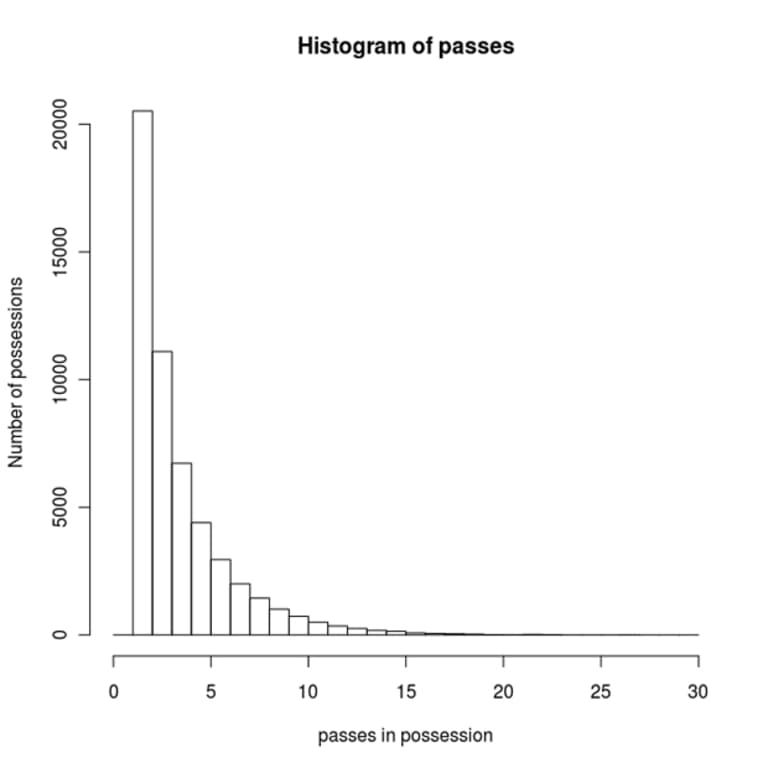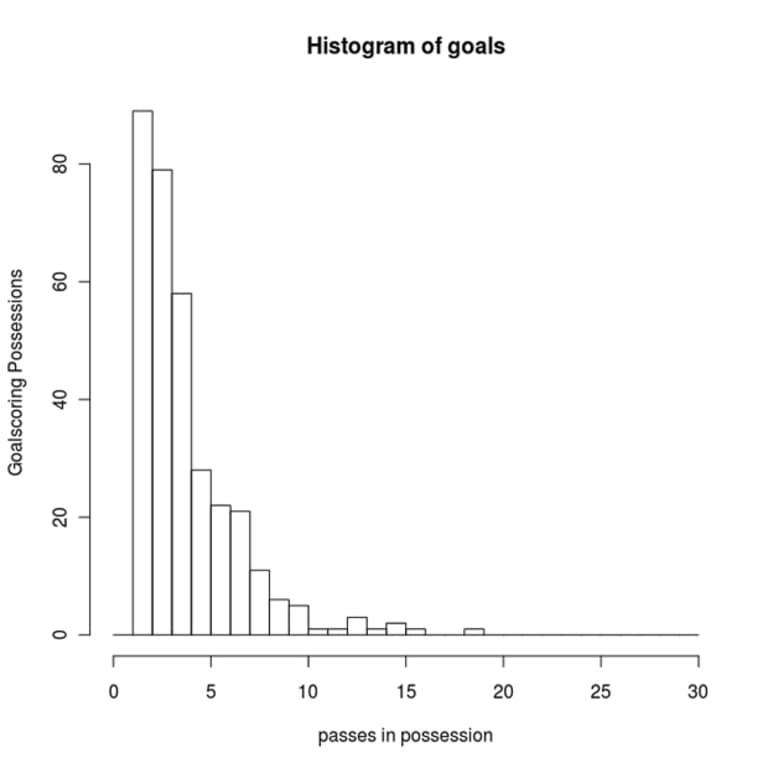In soccer, being in possession of the ball is considered by many as being synonymous with being on the offensive.
This makes intuitive sense: if a team has the ball, they have the opportunity to score. Conversely, the team without the ball will never have an opportunity to score. Therefore, soccer will always revolve around possession and who has it. It's a valuable commodity.
Everyone has an idea of what possession is, but when asked to construct a rock-solid definition, many fall short. While it is often very clear which team is currently in possession of the ball, the specific start and end points are gray areas.
For example, on a play including a clearance recovered by the defensive (now offensive) team, when did this possession start? Did it start when they cleared the ball? Or did it start when the clearance was attempted, despite the opponent not touching the ball in-between? This is just one edge-case that frustrates analysts, because there’s no universally agreed measure.
However, for the sake of this article, we will simply define possession as a string of two or more attempted passes. It's imperfect definition by all means, but passing is integral to the state of possession so it provides a strong enough proxy for our experiment.
Here is each possession in the 2011 MLS season binned by the number of passes in each possession. As expected, longer stretches of possession are rare, something of a white buffalo.

But, does having more passes in a single possessions lead to more goals? It seems not. Here is the same chart, but only looking at possessions where a goal was scored. A very similar shape!

And when you correlate the number of passes in a possession to the number of goals scored in possessions of that length, a very weak positive correlation is found. So small, in fact, that the margin of error suggests that the correlation may not even exist.
Simply, longer possessions don't mean more goals.
However, there is a less intuitive finding that I came across in this same experiment. The more passes that a team completes in an average possession, the less goals they concede on average. As suggested by Rui Xu of Sporting Kansas City in yesterday's Numerology interview, “There is a larger variation in performance over a smaller sample size.”
In other words, the more passes you complete, the fewer possessions your opponent will have. The fewer possessions your opponent has, the fewer opportunities they will have to score. The fewer opportunities your opponent has to score, the fewer goals they will actually score.
That's math that any old-school coach can appreciate. And it points to one very specific thing: Possession, after all, may be more of a lethal weapon defensively than offensively.
Devin Pleuler is a computer science graduate from Wentworth Institute of Technology in Boston, where he played on the men's varsity team as a goalkeeper. He's certified as a coach through both the USSF and NSCAA, and writes the Central Winger analytics column for MLSsoccer.com.













